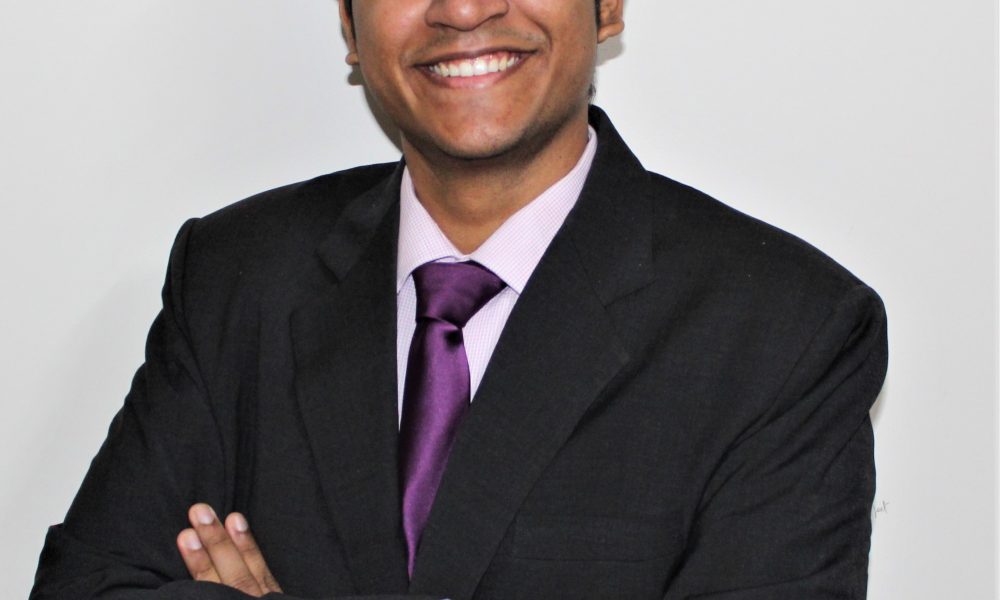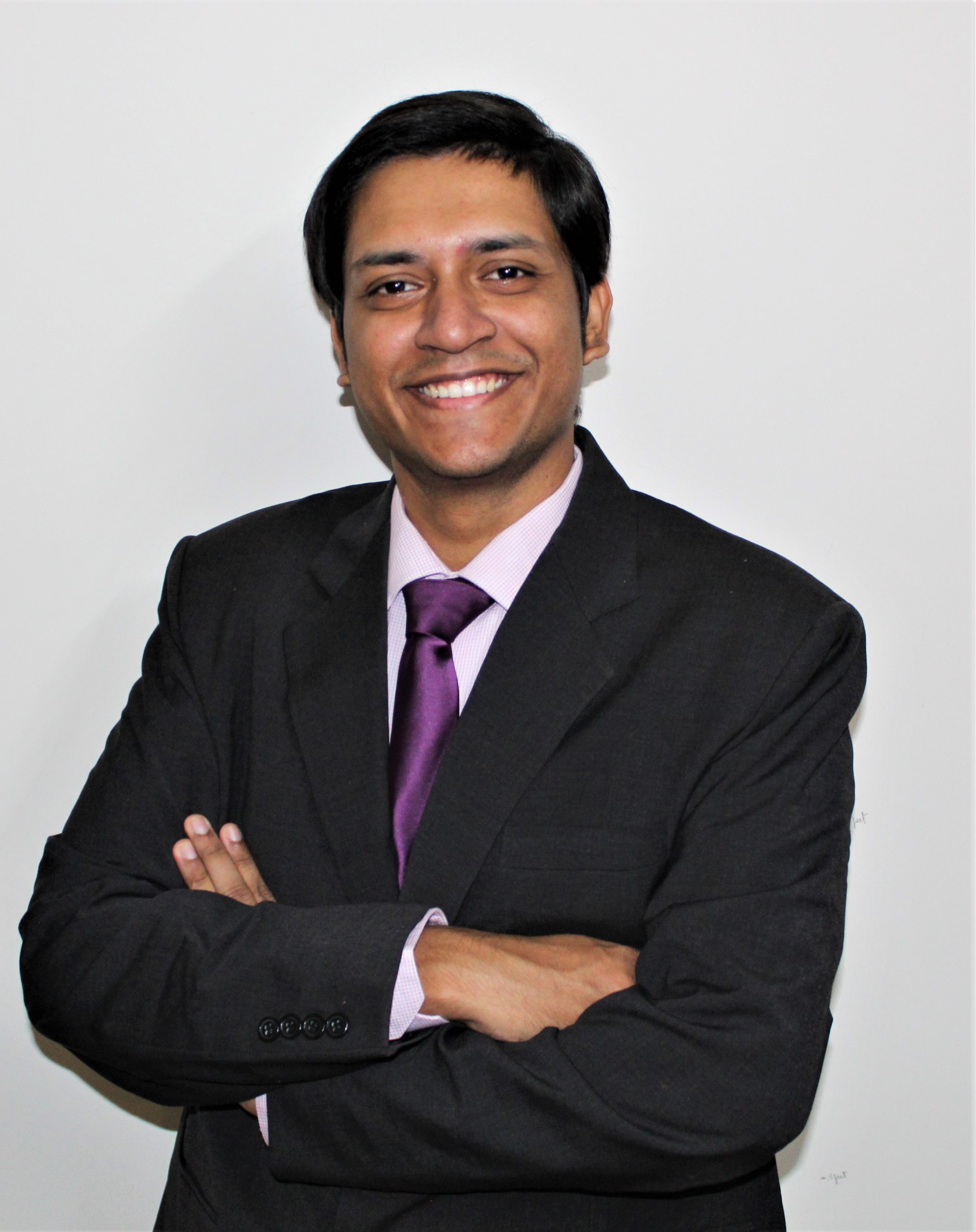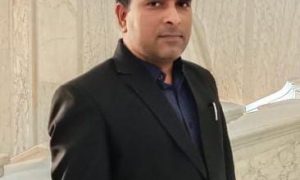This interview has been published by Priyanka Karwa and The SuperLawyer Team

With your wide range of practice areas, could you share with us how you developed such a diverse expertise in the field of law?
I have been practicing as a litigating lawyer for just over 10 years now before the High court and National Company Law Tribunal and also International and Domestic Arbitration. I also do general corporate practice, as my firm is an authorized partner with Ras Al Khaimah Economic Zone Authority (RAKEZ) assisting companies to set up businesses in Emirate of Ras Al Khaimah. When you are in litigation, it is very difficult to build an exclusive specialized practice from the start and it is equally very important, initially, to accept briefs or assignments in all areas of law, as it would also increase one’s horizon of knowledge and experience, which is a valuable asset. The practice at the High Court, generally involves knowledge of multiple enactments. One day you are advising and drafting a petition for interim measure in an international commercial arbitration for a client in Singapore and the next day you are representing a farmer from a remote village to obtain his just compensation in a land acquisition process from the government and the day after that you are representing a government employee in a service matter before the High Court or assisting a company to set up their business in Ras Al Khaimah. I had also advised Insurance Regulatory Development Authority on the draft of their health insurance regulations, which gave me an insight into manner of drafting of subordinate legislation and policy. I believe as a lawyer, one should be able to any do any kind of work that the client has a requirement with initially and it is only in the later years, the market will decide one’s area of specialization. When you accept a variety of briefs, the word of mouth spreads about your competence. With the result and partly due to COVID and use of technology, I have business houses calling from remote parts of Maharashtra, Chattisgarh and West Bengal for advise on their commercial transactions and potential disputes.
You have specialized in domestic and international commercial arbitration and insolvency and bankruptcy law. What drew you to these particular areas of law, and what experiences or cases have had the greatest impact on your career in these fields?
My specialization in LLM program at Cambridge was in the field of International Dispute Settlement and International Commercial Litigation. Legal certainty and predictability is very important in commercial disputes, which enables businesses to make sound and informed decisions. Time is money for any business. The object of any commercial litigation is not to be to litigate and spend valuable resources on litigation but to find a way to amicably settle the dispute. It saves great amount of time and money for small and medium businesses. It is always exciting to strategize in commercial disputes as there can never be a one-stop solution for all commercial disputes. Each case is different. That is one of the exciting aspects of commercial disputes.
Initially in my career, it was very heartening to see some small scale business owner trying to enforce his contractual rights against large corporations, as it would be a make or break situation for the small scale business and the survival depends on payments which are yet forthcoming from large businesses. Such cases give confidence and purpose to what I do. Over the years, as one’s visibility and ability to perform increases, the larger corporations also engage you in one of their disputes, perhaps keeping in mind your representations and arguments in a previous matter for small scale business owner.
Could you tell us more about your time at Cambridge and how it shaped your career path?
My time at Cambridge was one of the most memorable time of my life, which was enriching academically and was also a stepping stone for further opportunities. My specialization was in the field of International Dispute Settlement and International Commercial Litigation and Law of World Trade Organization. The academic environment created in Cambridge automatically propels one to perform. I was fortunate to complete my thesis in Investment Arbitration under the supervision of late Professor James Crawford, Former Judge of the International Court of Justice and secure first class in the thesis. The interactions and discussions I had with him are now part of my cherished memories. Thereafter, I also had an opportunity to assist Prof Peter Van Dan Bossche, Former Member, Appellate Body Secretariat, WTO in the drafting and research of the TRIPS Chapter of his book ‘Law and Policy of the World Trade Organization: Texts, Cases and Materials’. These little opportunities propelled my career path towards international arbitration or secure an internship with the WTO Appellate Body Secretariat.
From your advocacy and advisory work to your internships at the World Trade Organization and Debevoise and Plimpton LLP in London, could you share some notable experiences or cases that have helped shape your approach to law?
During my internship experience at the Appellate Body Secretariat, WTO, Geneva, I got first hand experience of how laws applied at an international level and how a member’s view or perspective has the effect on a ruling and how geo-politics also has an effect on how cases are viewed by members. The AB Secretariat is assisted by several dispute settlement lawyers who assist the AB in preparation and research of the AB reports in the cases brought to it by member states. In one such issue, the issue was whose appeal is to be numbered first, if the appeals are filed on the same day. The nations at issue were two large economies of the world, one democratic and the other non-democratic. The representatives of both nations were at logger heads as to their appeal to be numbered first. Then it was decided by the AB that there will be a draw of lots and the first chit out of the box will have their appeal numbered first. A meeting was called for of the representatives and all the lawyers and staff were directed to be present. The next issue was who has to pick the lot. And lo behold, I was the person summoned to draw the lot as I was the junior most person in the room. I picked one. It gave me insight into how international rules are applied to see that disputes, howsoever trivial, are resolved. It gave me an insight into a realistic approact to application of the law to resolve disputes. Apart from that, I had also a chance to attend and witness meetings of the Dispute Settlement Body which are held on a regular basis and understand each member’s view point on a dispute pending before it.
During my time at Debevoise, London, I was mostly assisting the arbitration team in investor state arbitration and international commercial arbitration. The firm was representing a nation state in a commercial arbitration dispute which was primarily with respect to construction of oil and gas pipeline in the Middle East. The case involved issues of law of nation state as well as applicability of public international law in respect of state responsibility. I had also a chance to work on a research paper as to the advantages and disadvantages of use of artificial intelligence in international arbitration. It was an open ended topic so I had a chance to be creative with thought provoking ideas. I also had an opportunity to assist the team, which was advising a client on business integrity issues in respect of performance of contract with a contractor in a least developed country.
As someone qualified to practice law in both India and the United Kingdom, how do you navigate the different legal systems and regulations in these jurisdictions? What challenges and opportunities do you encounter in your international legal practice?
There are quite a few similarities between the English law and Indian law in field of commercial contracts and commercial disputes. Most of the aspects of law such as interpretation of contracts, law of damages and assessment of quantum of damages, which we see in India, have their basis in English law.
Culturally, India is not a litigious society. As India moves towards more open market, and many businesses also move outwards for opportunities exploring other markets in the world, the work for commercial disputes is bound to increase. I see that lawyers in India are equally competent and competitive and foresee opportunities for them also increase. However, for over a century now, London continues to hold the preferred seat for arbitration and commercial litigation for cross border disputes and English law as the choice of law for such disputes, though the companies may have no physical presence in England. Possibly it is because of certainty, predictability and stability in the legal system that London has to offer. If an Indian Company has the option of engaging an English qualified Indian Lawyer, it would be easier for them in terms of comfort as well as cost. Infact, I would like to see a foreign seated company engage a Indian law firm or an Indian lawyer for their international commercial arbitration outside of India. When it can happen in information technology services sector, why not in legal sector.
The challenge the Indian legal system now faces, is one of pendency and effectiveness in terms of enforcement of judgements. Both reasons have grave effect on how foreign investors view the Indian Legal system to be a preferred mode of system for settlement of disputes. There are about 8-10 forums providing rights for creditor to initiate recovery proceedings like civil suit, commercial court, debt recovery tribunal, insolvency, winding up, MSME facilitation council, arbitration councils but still the last mile delivery of enforcement of the decrees before the decree holder actually sees the recoveries or monies in his account is very slow. That may create some anxiety in minds of few with respect to the effectiveness of the legal system.
You’ve published several papers and articles in domestic and international law journals. Could you highlight one or two of your publications that you believe have had a significant impact or have generated interesting discussions within the legal community?
Though the publications are on varied subjects, I believe the stand out to be one in field of nuclear liability, which was published in the International Energy Law Review. It was written just after the Fukushima nuclear accident. The article was a comprehensive analysis of the international law and national laws in respect of regulations and laws with respect to nuclear safety and safeguards, rules governing the international trade in nuclear waste and rules with respect to transportation of radioactive material and the domestic and international law in respect of the liability regime in the event of nuclear accident. The object of the regulations is to attract private investments and also trade in nuclear fuel in a peaceful and environmentally sustainable manner. I had also argued that capacity building in nations and cooperation amongst nations is the primary requirement to have a peaceful mode of trade in nuclear fuel, which is essential peace, security and development of any nation state.
You’re frequently invited to law colleges to judge moot court competitions and deliver guest lectures in corporate law and arbitration. What motivates you to engage with law students and young professionals in this manner, and what advice do you often find yourself giving to those entering the legal field?
Moot Court competitions, guest lectures and webinars are good platforms for brain storming sessions and exchange of ideas, and is part of the learning curve and self-enquiry. It also keeps one abreast with latest updates of law and also understand perspectives, which may be difficult in regular rigmarole of litigation practice. As a lawyer, whether in litigation or general corporate practice, it is important to be updated with the new changes in the law and also updated with the latest judgements of the supreme court. Any judgement read, the judgement should be noted down in a ‘green book’ whereby it is very easy to again reference back to it when the need arises. I maintain a ‘green book’ which has a list of judgements subject wise, with the relevant citations. Though internet research is a very useful tool, it is important to have a personal database written as it is edged in one’s memory forever. It is always important to read a wide variety of subjects apart from law, such as politics, economics, non-fiction, biographies, historical fiction, editorials which increases your horizon of knowledge, vocabulary and perspective. The more one reads on varied subjects including law the more one is confident to represent in court.
Considering your vast experience and expertise, what advice would you like to share with fresh graduates who are just starting their careers in law?
The opportunities that are available to young graduates are endless. Aspire for excellence in law and never settle for mediocrity. It is important to have an open mind as to opportunities around you. There are several rural and marginal groups who lack knowledge to enforce their rights in a court of law, so that way the potential is unlimited.
If one is planning to enter into litigation practice as a career option, it is important to bear in mind that one has to be ready for a grind which is for the long haul, and there is no option for a short term stint in litigation. The waiting period for recognition is now, perhaps, reduced to 5-7 years, which was earlier 15-20 years in the previous generation. Having said that, one is also required to put in long hours in the initial days, after which the existential and survival issues are taken care of. The variety and range of clients one meets, small, big, rich, highly educated, illiterate, elite, poor and downtrodden and the variety of problems that one deals with in litigation and the privilege of having been given an opportunity to solve them is extremely gratifying. I do understand young graduates may have some anxiety about financial security, but they need not worry about that in litigation, as once one is established in practice, remuneration is not far away.
Lastly, it is important to be brutally honest with your advice to the client, as the client is entitled to the best in you and in what you can offer. It is very important that in order to gain the trust of one’s client, the lawyer and client are on the same page at every step of the matter. Even if the client may not like to hear what advice you have to give, as a professional, one is required to be honest to the client.
Get in touch with Srikanth Hariharan-
























